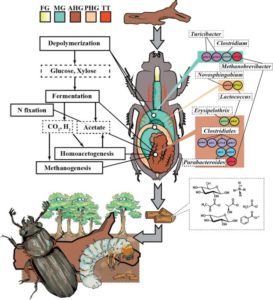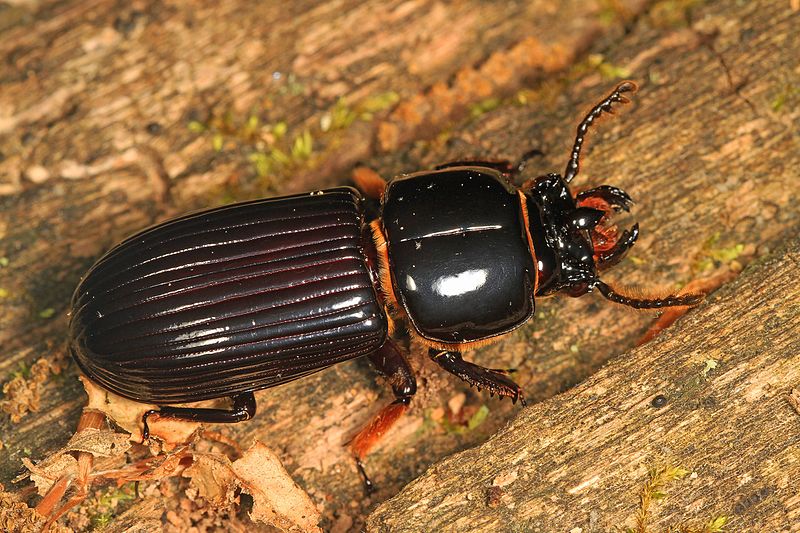A study led by Eoin Brodie and Javier Ceja-Navarro in Berkeley Lab’s Earth and Environmental Sciences Area (EESA) provides new insights into how the wood-eating passalid beetle’s complex digestive tract and resident microbes are able to efficiently turn tough plant polymers like lignin and cellulose into food and fuel. By bringing together a team of experts—including collaborators at Pacific Northwest National Laboratory and Lawrence Livermore National Laboratory—and using advanced molecular biology tools

Distribution of metabolic processes and microbial composition by compartment in the passalid beetle’s gut. (Credit: Javier Ceja-Navarro/Berkeley Lab)
combined with spectrometry and tiny sensors, they discovered that the beetle’s gut is made up of specialized compartments, each with a distinct microbiome, that work together in a manner similar to a factory production line. “The key innovation that nature has provided here is a way to combine biochemical processes that are otherwise incompatible,” said Brodie, deputy director of EESA’s Climate and Ecosystem Sciences Division, who has a secondary affiliation in Biosciences’ Environmental Genomics and Systems Biology (EGSB) Division. The study was published in Nature Microbiology.
Read more in the Berkeley Lab News Center.




